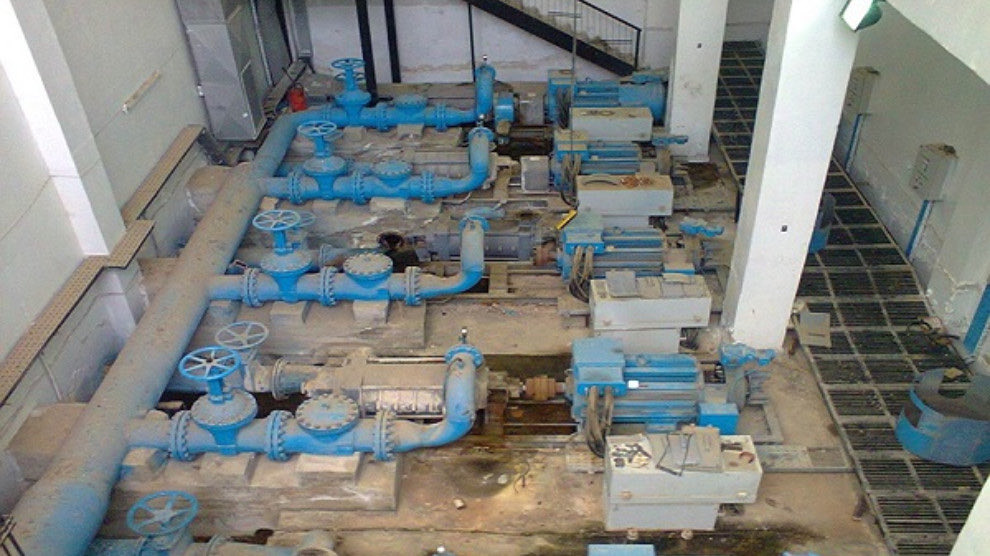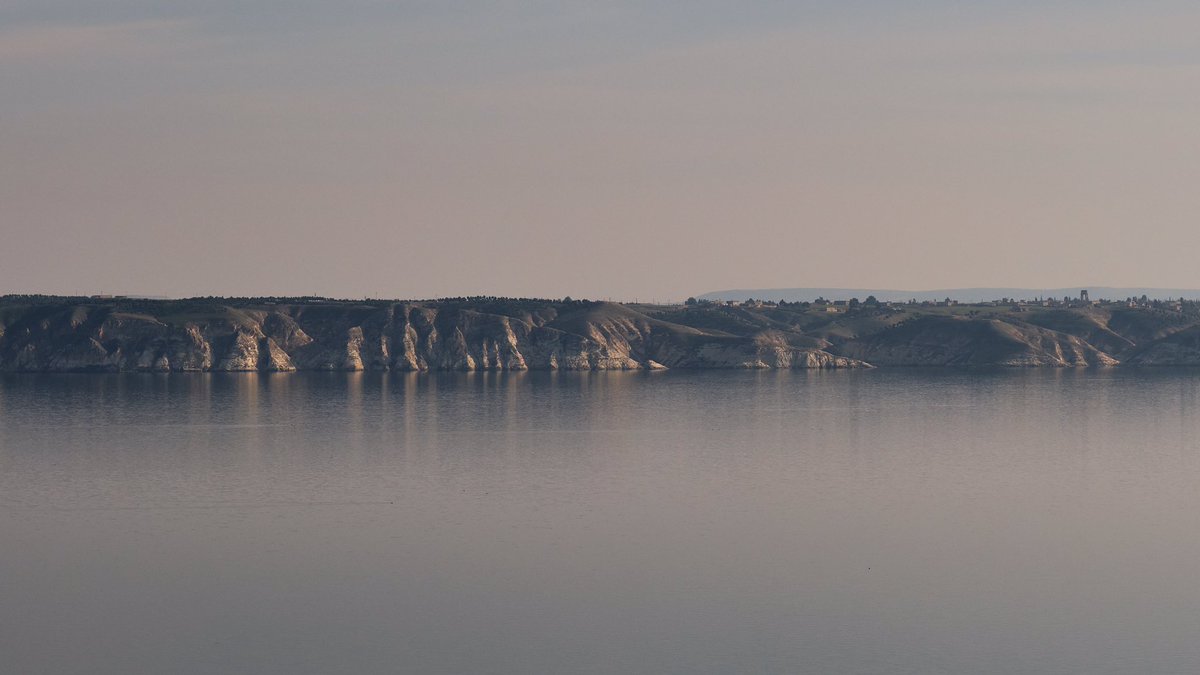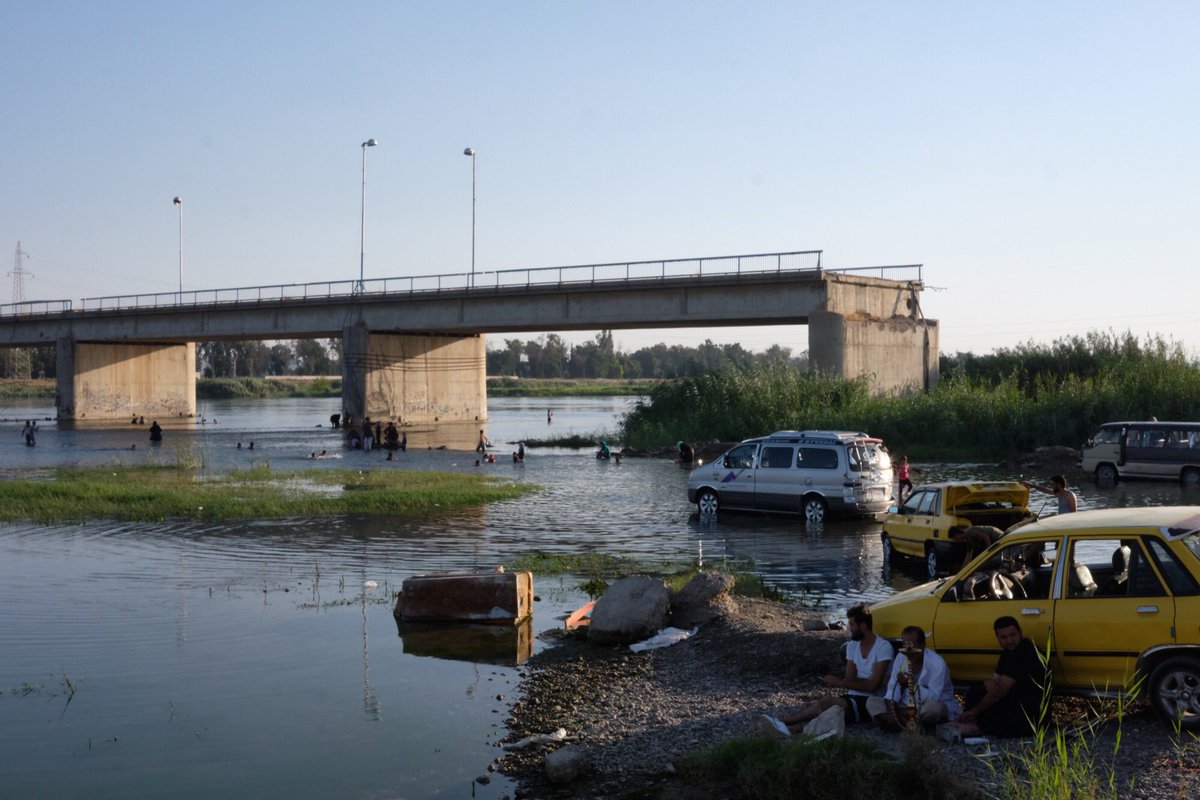I am currently living near Heseke (a city of 1/2 million people) and for 3 months we’ve had no mains water, for 3 days no water deliveries and in the last week maybe a total of 20 hours of electricity. It’s pushing 47c (115f) during the day and we get sandstorms every few days.
I was in Heseke and Raqqa last Summer and the situation was much better. What has changed?
1) In October 2019 Turkey and their islamist proxies occupied and looted the city of Sere Kani (lit. ‘On the spring’), an ancient source of fresh water for Heseke and many other towns.
1) In October 2019 Turkey and their islamist proxies occupied and looted the city of Sere Kani (lit. ‘On the spring’), an ancient source of fresh water for Heseke and many other towns.
2) The Alok pumping station responsible for providing mains water to Heseke has been attacked, looted, had its electricity supply cut and arterial pipes hit by artillery and airstrikes repeatedly, despite an agreement to secure its operation supposedly being in place.
3) Turkey have severely restricted the flow of all rivers, but in particular the Firat (Euphrates) into Syria. The Tishrin and Tabqa dams on the Firat are of viral importance to Syrians, providing a large proportion of both clean electrical power and water for irrigation.
I visited the Energy Committee last year who explained how at peak almost half the electrical power for NE Syria is provided by these 2 dams. The river is of vital importance for agriculture & fishing, domestic & industrial power, as well as a place for recreation & nature.
As a result of the huge drop in water flow, both algal bloom and effluent discharge (dumping of waste water by Turkish municipalities upstream) have become much bigger problems, rendering what little water is left unsuitable for many uses.
With this access to both clean drinking water and electricity cut, both the existing 500,000 residents of Heseke and the 300,000+ IDPs displaced by ethnic cleansing in Turkish-occupied areas and now living in the area have had their lives made significantly harder.
The lack of pumped water hugely restricts access to sanitation and without electricity for refrigeration food spoils quickly in near 50c heat. The use of natural gas and diesel have increased for cooking and in order to transport water, at a time when the economy is under strain.
Sere Kani & Alok were attacked, and the Firat heavily restricted to use water as a weapon of war. Not against any so-called teröristler, but against millions of civilians in Syria who have already suffered greatly from Turkey’s support of ISIS and attacks on Afrin, SK & Tel Abyad
With the effects of climate change starting to hit, the situation is becoming increasingly dire for ordinary people here.
But they are not going down without a fight. There is a huge drive towards self-sufficiency underway.
But they are not going down without a fight. There is a huge drive towards self-sufficiency underway.
There are water conservation drives across the region, new wells being dug, a push to move away from cash crops and to productive vegetable production with more efficient methods, increasing use of solar power and huge campaigns to raise awareness of Turkey’s criminal actions.
You can help in many ways. The SEA have an excellent campaign running to support water projects in NE Syria, which you can learn about and contribute to here: https://www.crowdfunder.co.uk/water-for-rojava
(And">https://www.crowdfunder.co.uk/water-for... follow @CoopMesopotamia)
(And">https://www.crowdfunder.co.uk/water-for... follow @CoopMesopotamia)
And when travel restrictions begin to ease you can volunteer for @GreenRojava, Roots for Change or @HeyvaKurd either here or fundraising in Europe.
We are in need of professional civil, environmental and electrical engineers and people experienced with ecology and conservation.
We are in need of professional civil, environmental and electrical engineers and people experienced with ecology and conservation.
Out of the hardship created by Turkey’s brutal ongoing war against the people of Northern Syria we can achieve a resilience and self sufficiency that acts as a model for other regions affected both by war and the increasingly difficult effects of climate change.
P.S. also a lot of appreciation for @UnPontePer who are one of the few NGOs who have worked tirelessly to improve conditions for ordinary people in Syria even when the UN and MSF pulled out during the Turkish invasion.

 Read on Twitter
Read on Twitter




